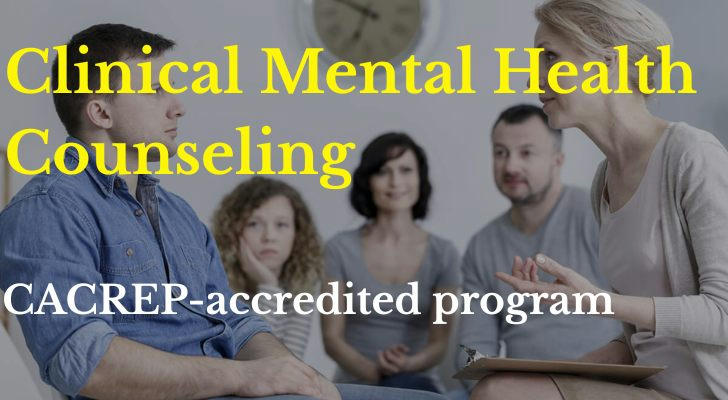Accredited, Flexible, and Career-Focused: Master’s Programs in Mental Health Counseling
The demand for mental health professionals is rapidly increasing, and a master’s program in mental health counseling offers a clear path to a successful career. These programs are nationally accredited, provide flexible learning formats, and offer strong career support. Whether you’re looking for a program that fits your schedule or one that leads directly to licensure and employment, these degrees equip you with the tools and opportunities you need to succeed.

Why Choose a Master’s in Mental Health Counseling?
1️⃣ CACREP Accreditation Nationwide
Accredited programs ensure a standardized, high-quality curriculum that meets national licensure requirements.
2️⃣ Flexible Learning Options
Many universities offer online or hybrid learning formats, allowing students to study from anywhere while balancing other responsibilities.
3️⃣ Supportive Learning Environment
Many programs offer comprehensive support, including career counseling, paid internship opportunities, and networking events. These resources can help build a solid foundation for your future career and help you connect with professionals in the field.
4️⃣ Career-Oriented Training
These programs emphasize practical skills and real-world experience, preparing you for success in mental health counseling. Graduates typically work in hospitals, clinics, and community health centers, contributing to individual and community well-being.
5️⃣ A Growing Job Market
According to the U.S. Bureau of Labor Statistics, demand for mental health counselors is projected to grow 23% from 2020 to 2030—much faster than the average for all occupations. This growth means more job opportunities and career advancement for those entering the field.
What Training Options Are Available?
🔹 Registered Apprenticeship Programs
Combine classroom learning with paid, on-the-job training.
Provide a direct pathway to national licensure upon completion.
Typically involve mentorship under a licensed counselor.
🔹 Employer-Supported Programs
Some healthcare organizations sponsor employees pursuing counseling degrees.
Include flexible scheduling and tuition reimbursement plans.
Often lead to continued employment after graduation.
🔹 Community College and University Partnerships
Joint programs that offer advancement from associate to master’s level.
Stackable credentials with a clear path to licensure.
Ideal for students seeking local support with long-term goals.
🔹 Online and Hybrid Courses
Online and hybrid formats offer the flexibility to study anytime, anywhere, making it easier for working professionals and those with family obligations to earn a degree. These programs often include interactive online classes, virtual labs, and webinars.
How to Apply for Training?
Basic Qualifications:
Bachelor’s degree (any major, though psychology or social sciences are preferred)
GPA requirements vary by institution
English proficiency (for international students)
A commitment to clinical practice
Application Steps:
1️⃣ Research Programs
Look into CACREP-accredited programs that fit your schedule and goals.
2️⃣ Prepare Application Materials
Gather transcripts, letters of recommendation, and a statement of purpose.
3️⃣ Submit Application
Apply online through the university or centralized systems such as GradCAS.
4️⃣ Complete Interview
Attend an admissions interview if required.
Other Program Options
In addition to traditional master’s programs in mental health counseling, there are several other options. Nonprofit organizations and government agencies often provide specialized training programs and internship opportunities, giving students valuable experience and professional connections. These programs may focus on specific populations or areas of mental health, such as addiction counseling or child and adolescent mental health.
Choosing the Right Path by Age Group
| Age Group | Recommended Pathways |
|---|---|
| 18–25 | Direct-entry master’s programs with hybrid or online options |
| 26–35 | Employer-sponsored degrees while working in a related field |
| 36–45 | Career transition programs with flexible evening/weekend classes |
| 46–65 | Part-time master’s programs for late-career skill development or community service |

Start Your Mental Health Counseling Career Today
A master’s degree in mental health counseling offers more than academic credentials—it opens the door to meaningful work and growing opportunities in healthcare. With programs tailored to adult learners, flexible course delivery, and hands-on training, now is the perfect time to explore a degree aligned with your goals. This career path offers both stability and a deep sense of personal fulfillment.
